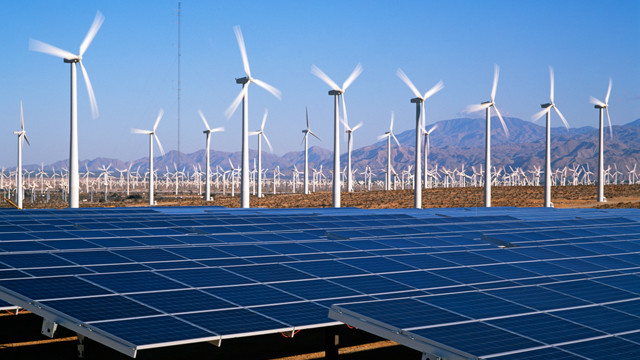From January through July of this year, wind and solar in the U.S. generated more net electricity than power from coal, according to recent data from the U.S. Energy Information Administration (EIA).
According to the EIA’s Monthly Energy Review for July 2024, electricity net generation from renewable energy outpaced coal for the first seven months of the year so far, a first for the U.S.
Further, wind energy generation alone beat coal energy generation in two consecutive months: March and April. As CleanTechnica reported, wind energy installations produced 45.9 gigawatt-hours (GWh) in March and a record high 47.7 GWh in April, compared to the 38.4 GWh in March and 37.2 GWh in April generated by coal-fired power plants.
In 2023, renewables outpaced coal energy generation for the first five months of the year. But by summer, energy demand increased, especially considering last summer was the Northern Hemisphere’s hottest summer in 2,000 years.
Because renewables were able to outpace energy generated by coal in summer 2024, even with increased demand in what may become the hottest year on record, renewable energy sources may end up producing more energy than coal for the entire year, Scientific American reported.
“I think it is an important milestone,” said Ric O’Connell, executive director of GridLab, as reported by Scientific American. “I think you’re seeing a solar surge and a coal decline and hence the lines are crossing.”
Renewable energy, particularly from wind and solar sources, has been rapidly increasing. For 2024, the U.S. is slated to add a total of 36.4 gigawatts of solar utility-scale electric generating capacity, up from the 18.4 gigawatts added the previous year.
As Scientific American reported, wind energy production is up about 8% compared to last year. About 2.5 gigawatts of wind capacity have been added as of June this year, and another 4.5 gigawatts are expected to be installed before the end of 2024.
During the past 25 years, there have been major strides in growing renewable energy. Wind energy capacity in total has grown from 2.4 gigawatts in 2000 to more than 150 gigawatts by spring 2024, CleanTechnica reported. Solar has increased by more than 99 gigawatts over the same time period. Coal capacity declined to 177.1 gigawatts by April 2024, compared to 315.1 gigawatts in 2000.
The focus on renewables has helped grid resilience amid extreme weather and increasing energy demand. O’Connell credited wind, solar and battery storage for stabilizing the energy grid in Texas this summer. In California, officials with the California Independent System Operator (CAISO) also praised renewable energy and battery storage for preventing major energy disruptions, even as the state faced its hottest month on record this July, The Guardian reported.






